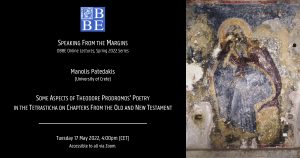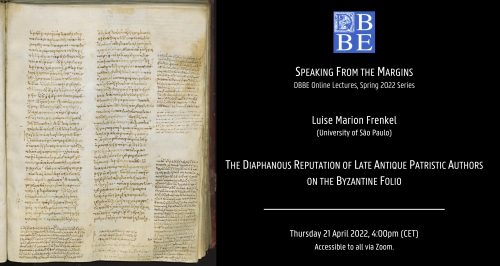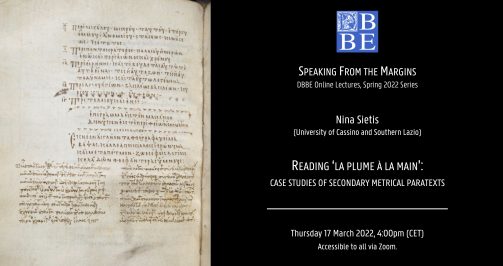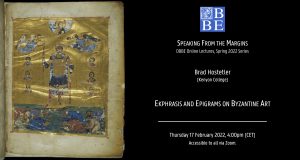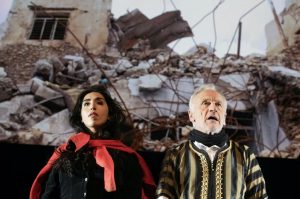The fourth lecture in the online lecture series Speaking From the Margins. DBBE Online Lectures, Spring 2022 Series will be given by Manolis Patedakis (University of Crete).
Manolis S. Patedakis is Assistant Professor in Byzantine Philology. He completed his undergraduate (B.A.) and first level of postgraduate studies (M.A.) at the Department of Philology, University of Crete; he finished his dissertation for the doctoral degree (D.Phil.) at the University of Oxford in 2004, under the title “Athanasios I Patriarch of Constantinople (1289-1293, 1303-1309): A critical edition with introduction and commentary of selected unpublished works”. Between September 2007 and May 2008, he was Research Fellow at Dumbarton Oaks (Trustees for Harvard University), Washington, D.C. His special interests focus on texts and literature of the Palaeologan period, epigraphy and manuscript culture from medieval and early modern Crete, and Symeon the New Theologian. His publications include editions of Greek literary texts and inscriptions, including of the writings of Patriarch Athanasios I of Constantinople.
Abstract
The collection of poems by Theodore Prodromos known as the Tetrastichs both on the Old and the New Testament preserves certain interesting aspects as regarding the aesthetics and the spirit of his. Simple comments on biblical incidents to a more perplexed criticism addressed to sacred figures, monologues and dialogues –which sometimes become more dramatic– coloured with a sense of humour, or possible sarcastic references to the poet himself, are only a few amongst the attributes that we can mention for this group of poems. As the narration moves from the Old to the New Testament the reader wonders whether the logic slightly changes, and the new spirit of Christian art and art of speech also allows further connections between Prodromos’ poetics and other artistic and cultural means in twefth century Constantinople and Byzantium.
Practical information
Date & time: Tuesday 17 May 2022, 4:00pm (CET)
No registration required. The lecture is freely accessible via Zoom: https://ugent-be.zoom.us/j/94744052849?pwd=SndUT3NWd3FWZFBWbjNlbUJxSENaQT09.
- Meeting ID: 947 4405 2849
- Passcode: ka88aW3p
N.B.: A Zoom account is required to join this meeting. Please make sure to be logged in, using your Zoom credentials.
